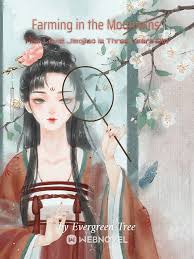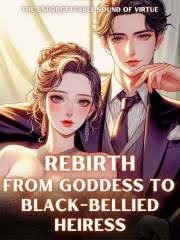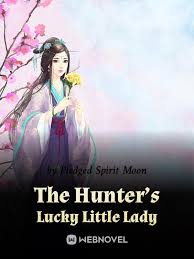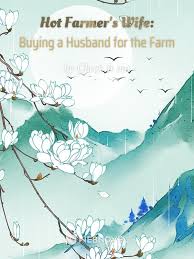The Story in 3 Sentences
In his previous life, Xue Yan rose to become a powerful minister but lost everything dear to him, and upon reincarnating at age seven, he vows to abandon ambition and live peacefully as a humble farmer in the mountains .
His quiet plans are upended when his father adopts Jiang Yue—a three-and-a-half-year-old girl who is secretly the transmigrated supreme commander of a post-apocalyptic wasteland, possessing unmatched strength and an uncanny ability to attract powerful figures wherever she wanders .
As Jiang Yue unintentionally reshapes their quiet village by dragging home generals, princes, and even the emperor himself, Xue Yan must navigate a life he never chose while protecting the family he’s determined to keep safe this time around .
Why It Stands Out
1. A Rebirth That Rejects Power for Peace
Unlike typical xianxia or historical rebirth tales where the protagonist chases dominance, Xue Yan actively flees from it. His desire isn’t to conquer or ascend but to cultivate crops, share meals, and shield his loved ones—a radical quietism that grounds the story in emotional realism amid absurdity .
2. The Ultimate Toddler Plot Device with Depth
Jiang Yue isn’t just a cute mascot; she’s a tactical genius in a toddler’s body whose actions drive national-level consequences without her even trying. Her paradox—world-ending competence wrapped in innocent mischief—fuels both comedy and genuine narrative tension, turning every outing into a geopolitical incident .
3. Daily Life as High-Stakes Drama
The novel masterfully blends slice-of-life farming with imperial intrigue. One chapter might detail composting techniques; the next has the empress dowager kneeling in gratitude. This tonal balance makes the ordinary feel magical and the extraordinary feel intimate, a rare feat in the genre .
Characters That Leave a Mark
There’s Xue Dagui – the hot-headed, often foolish older brother whose impulsive violence and stubborn pride create recurring domestic chaos, yet whose underlying loyalty to family slowly reveals a flawed but redeemable soul .
You’ll meet Shao Shuting, who serves as a grounded counterweight to the story’s surreal elements; once Xue Yan’s study companion and now a capable official, he bridges the rural mountain life with the capital’s political machinery, offering both aid and subtle commentary on class divides .
And Huo Wenqing? They’re the one who quietly supports the family through practical action—planting seeds at dusk, standing guard without fanfare—and embodies the novel’s theme that true strength often lies in steady, uncelebrated presence .
The Flaws Fans Debate
Some readers find the episodic “Jiaojiao brings home another VIP” structure repetitive over 2000+ chapters, with diminishing narrative stakes despite escalating guest status.
Critics note that while Xue Yan’s rejection of power is compelling early on, his passive role in later arcs can make him feel more like a bystander than a co-protagonist.
A segment of the audience argues that the farming and survival details—initially a charming anchor—become inconsistent or glossed over as the plot leans harder into political and martial spectacle.
Must-Experience Arcs
Ch. 1–50: The Mountain Homestead Begins – Xue Yan returns to childhood, rejects scholarly ambition, and embraces farming; Jiang Yue arrives as a foundling, immediately upending the household with her otherworldly instincts and accidental heroics.
Ch. 700–800: Seeds of the Capital – The family’s influence expands beyond the village as Jiang Yue’s rescued dignitaries begin sending resources, spies, and marriage proposals; Xue Yan reluctantly engages with bureaucracy to protect their autonomy.
Ch. 1900–2040: A Quiet Empire – In the final stretch, the mountain home becomes a de facto sanctuary for retired generals, exiled nobles, and reformed villains; the story closes not with a battle, but with a harvest festival attended by the emperor himself, affirming the value of peace over power.
Killer Quotes
“Having land is important for farmers. Money fades, titles rot, but the earth remembers who tended it.”
“In this life, I don’t want to rule the world. I just want to see my family eat dinner together—every night, without fear.”
“She’s only three, but she carries the weight of a thousand battles in her eyes. And still, she laughs when the chickens chase her.”
Cultural Impact
The novel sparked a micro-trend in Chinese web fiction of “max-level toddlers” paired with low-key male leads, inspiring dozens of imitators on Webnovel and Dreame.
Fan art of Jiang Yue dragging a bewildered general by the hand while clutching a sweet potato became a recurring meme template across Twitter and Weibo.
With over 3.9 million views and consistent top-10 rankings in the General genre on Webnovel, it helped normalize the “farming + transmigration + family” hybrid as a commercially viable niche .
Final Verdict
Start Here If You Want:
A heartwarming escape where strength is measured in shared meals, not sword strikes.
A protagonist who chooses love over legacy, and wins quietly.
A child who changes the world by simply being herself—no grand speeches, just sticky fingers and impossible luck.
Study If You Love:
Narratives that subvert power fantasy tropes by valuing domesticity as resistance.
The interplay between post-apocalyptic competence and pre-industrial innocence.
How webnovels can sustain emotional continuity across thousands of chapters through character-driven routines rather than plot escalation.
Avoid If You Prefer:
Fast-paced action with clear antagonists and linear progression.
Stories where the protagonist drives the plot through decisive choices rather than reactive care.
Strict historical realism without genre-blending absurdity or transmigration mechanics.





